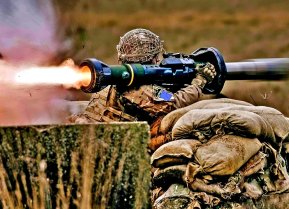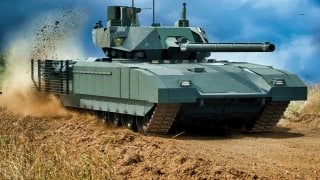Putin vs. NATO: What Happens After the Ukraine War Is Over?
However the war in Ukraine ends, it is difficult to imagine that Putin’s hostility toward NATO or his attempts to undermine it will come to an end. But how will Putin seek to deal with NATO after the end of the Russia-Ukraine war?
For Putin, the conflict between Russia and Ukraine has not been just about the Russian-Ukrainian relationship, but also about Russian and Ukrainian relations with the North Atlantic Treaty Organization (NATO) alliance as a whole. However the war in Ukraine ends, it is difficult to imagine that Putin’s hostility toward NATO or his attempts to undermine it will come to an end. But how will Putin seek to deal with NATO after the end of the Russia-Ukraine war?
If Putin is dissatisfied with how the war ends because Russia does not obtain as much of Ukrainian territory as Putin wants and/or because Ukraine either joins NATO or receives strong military support from it, Putin will continue to regard NATO as an adversary and continue his hostility toward it. On the other hand, if Putin is satisfied with how the war ends, either because Russia obtains at minimum Western and Ukrainian acquiescence to the annexation of those provinces that Moscow has declared to be part of Russia or because the U.S. and other members have agreed not to admit Ukraine into NATO, Putin’s appetite for weakening NATO even further may only be whetted.
Whether Putin is satisfied or dissatisfied with the outcome of the Russia-Ukraine war, then, Russia-NATO relations seem destined to remain hostile, and possibly even conflictual if there are no other major geopolitical developments impinging on Russia. But this, of course, is something that is by no means certain.
China is reported to have supported Russia as strongly as it has in its ongoing war with Ukraine to prevent what Beijing regards as a worst-case scenario: the defeat of Russia leading to the collapse of the Putin regime, the rise of a pro-Western government in Moscow, and this pro-Western Russia joining NATO as well as America’s Asia-Pacific allies in a grand alliance encircling China.
However the war ends, if this Chinese worst-case scenario is no longer likely, then Russian hostility toward NATO may conflict with Beijing’s desire to improve relations with Europe and try to lure it away from the United States. Beijing may even see offering reconstruction assistance to a Ukraine disappointed with the West over the terms ending the Russia-Ukraine war as a way to wean Ukraine away from the West. However, China achieving these aims will only be possible if Moscow’s post-war behavior toward Ukraine and Europe is restrained.
It is also worth noting that while the Sino-Soviet rift began during the height of Soviet-American tension during the Cold War, it intensified during the late 1960s and 1970s when the U.S. appeared to be a declining power due to the failure of its wars in Southeast Asia and its inability to prevent the spread of anti-Western revolution in what was then known as the Third World.
This raises the possibility that if the war in Ukraine ends under circumstances that make Russia appear stronger and America and NATO weaker, Russian and Chinese interests may start to clash with each other more. Indeed, Sino-Russian differences may emerge after the end of the Russia-Ukraine war even if NATO remains strong, but Beijing no longer fears the possibility that Russia could suffer defeat and regime change and China is also less tolerant of Russian behavior that impinges on Beijing’s interests.
Sino-Russian rivalry, then, could emerge no matter how the Russia-Ukraine war ends. If it does, then Russia would be better served through some sort of detente with NATO. If Russia-NATO hostility continues and Sino-Russian rivalry emerges, a strong NATO may not be willing to help Russia vis-a-vis China while a weak NATO might not be able to.
About the Author:
Mark N. Katz is Professor Emeritus at the George Mason University Schar School of Policy and Government, is a Global Fellow at the Wilson Center and a Nonresident Senior Fellow at the Atlantic Council.
Image Credit: Creative Commons and/or Shutterstock.


